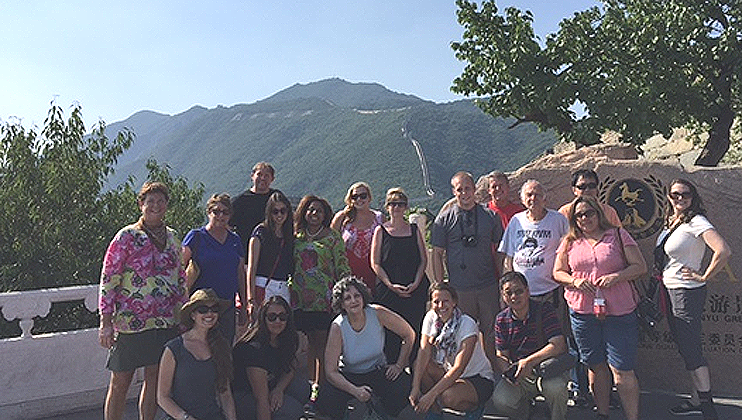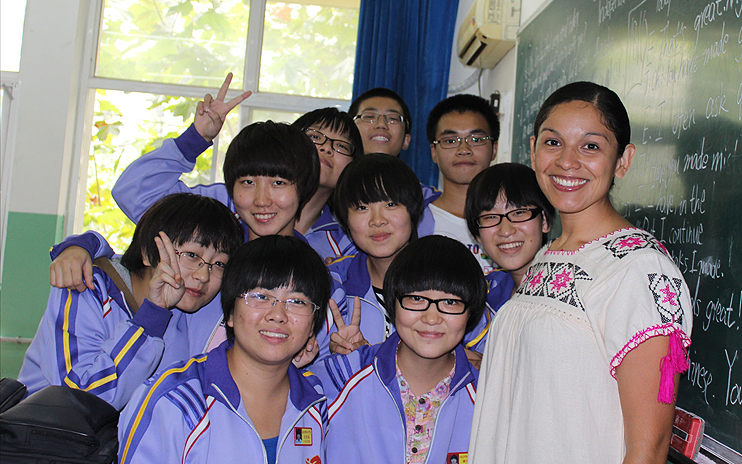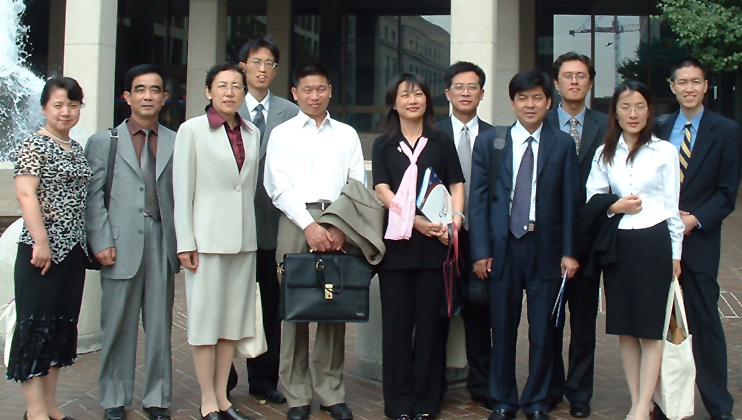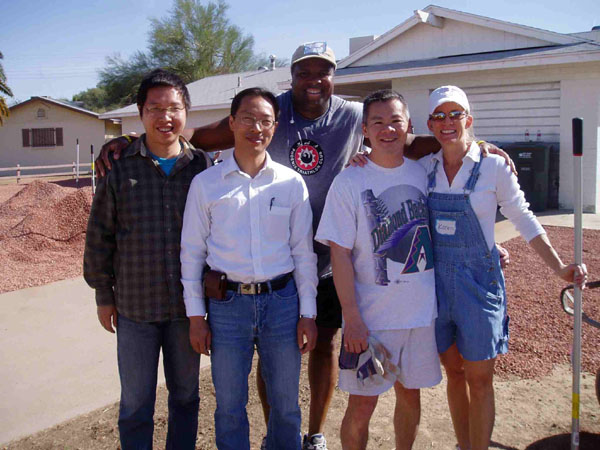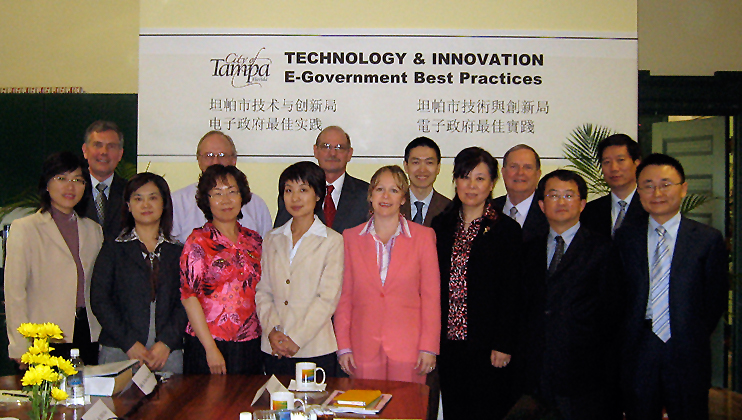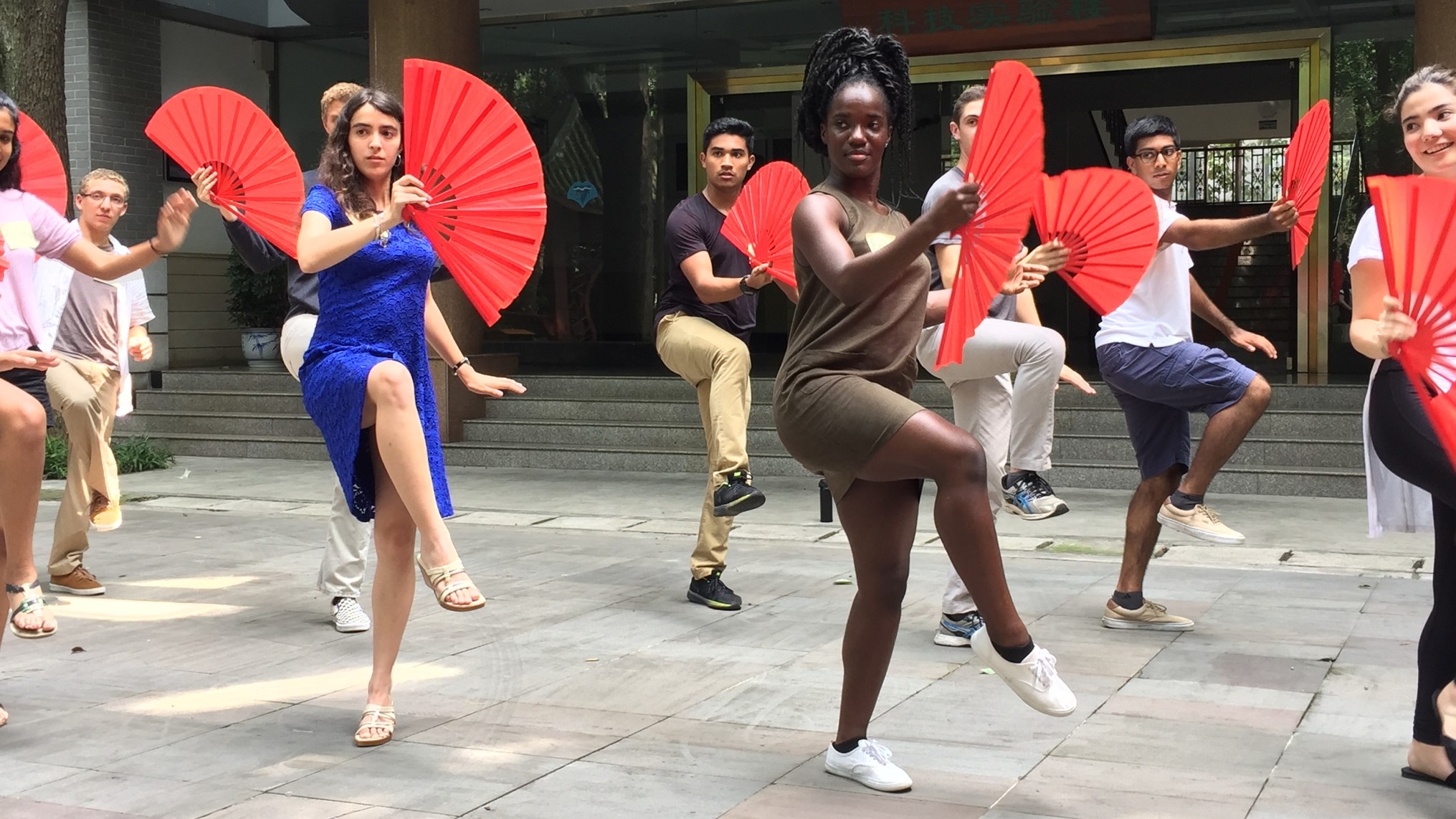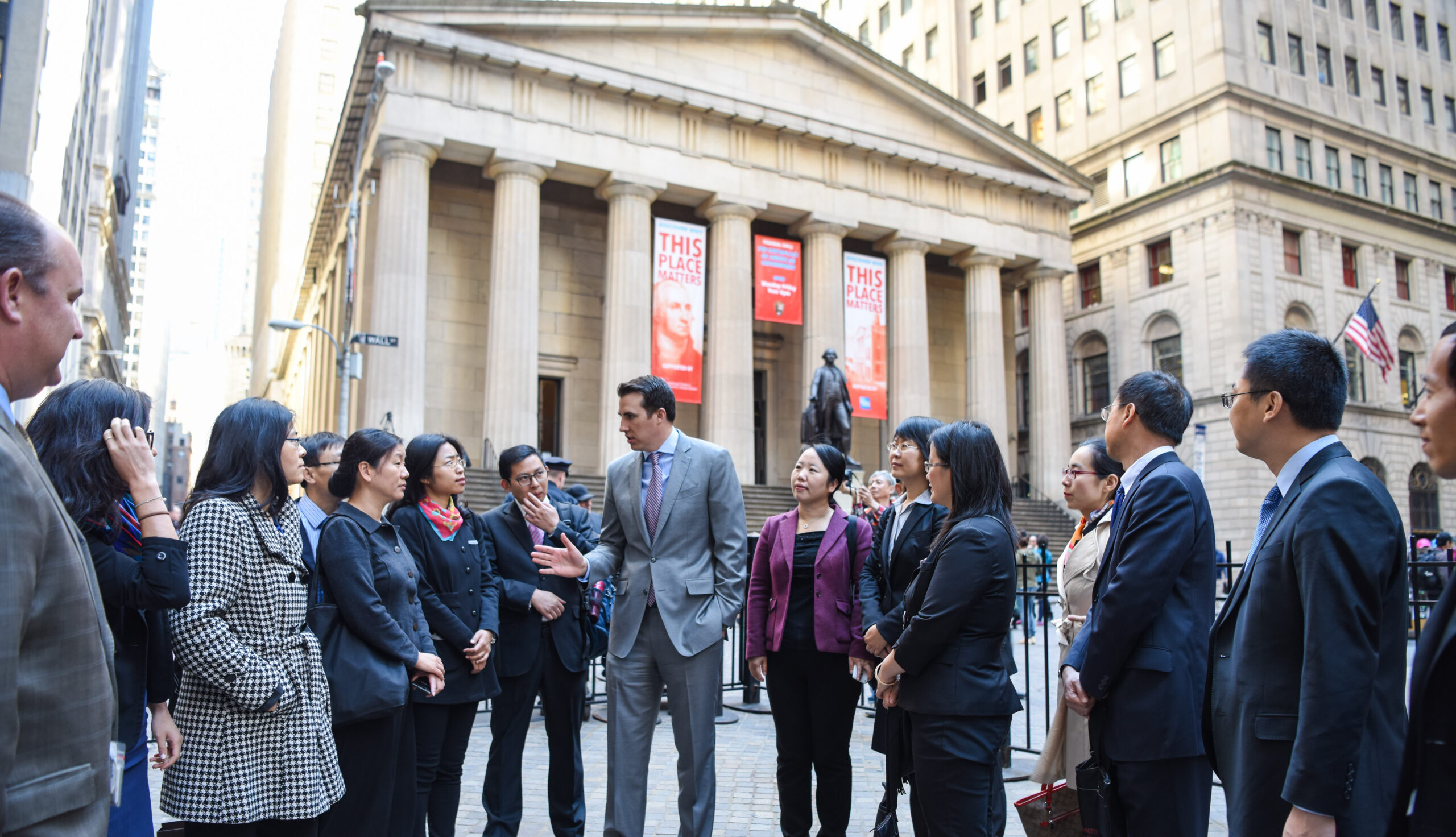In July, 2008, the National Committee brought together 30 of the best minds on various aspects of China and several specialists in other areas for a synergistic, cross-cutting look at some of the major challenges facing China and the United States and what the best policies might be to enhance cooperation and ameliorate conflict over […]
Six editors of American foreign policy and political affairs journals traveled to Beijing, Shanghai, and Taipei to gain a greater understanding of Chinese foreign policy issues.
The Master Teacher China Seminar is a half-day of China programming for some of the top educators in the country. Held in Washington, D.C., the Seminar draws its audience from the teacher attendees of National Recognition Week – an annual event that celebrates the accomplishments of up to 141 top graduating high school seniors from […]
Administered by the Committee from 1981 to 2015, the Fulbright-Hays Seminars Abroad Program sent American pre-collegiate and college-level educators to several cities in China for 4-5 weeks each summer. It offered an opportunity to gain valuable, first-hand insights into a country that has become an important element in American education across the curriculum. Through the intensive program of briefings and site visits, educators enhanced their ability to teach about Chinese culture, history, politics, economics, and other areas.
Between 1996 and 2014, the U.S.-China Teachers Exchange Program, established with funding from the Freeman Foundation, sent American K-12 teachers to China and brought Chinese secondary school teachers to the United States. Since the program began, 116 American teachers taught in Chinese secondary schools, and 332 Chinese teachers taught in American elementary, middle, and high […]
In 2002, a consortium that included the National Committee, The Asia Foundation, and Worldwide Strategies, Inc. was awarded a multi-year contract by the U.S. Department of Labor to run a set of programs to improve Chinese labor laws. The overall goals were to help strengthen the Chinese government's capacity to develop laws and regulations to implement internationally recognized standards of workers' rights, to promote greater awareness of labor law among Chinese workers and employers, to strengthen industrial relations, and to improve legal aid services to women and migrant workers. The National Committee's mandate was to work on legislative and labor inspection issues.
With limited funds at their disposal, China's NGOs are increasing their human resource pool and engaging their communities by utilizing volunteers to fulfill their missions. It is within this context that the Strengthening Volunteer Management in Chinese NGOs project was developed in 2005, with the goal of providing Chinese NGO professionals practical training in volunteer management.
Despite differences in political traditions and practices, municipal government officials in the United States, mainland China, and Taiwan share interests in delivering services to citizens, promoting economic development, and managing government resources. Many have taken advantage of the Internet’s capacity for fast, inexpensive communication and introduced innovative municipal websites. These e-government initiatives, in turn, have […]
Since 2004, the National Committee has been selecting twelve graduating U.S. high school seniors who have received national recognition for their accomplishments to participate in the yearly U.S.-China Student Leaders Exchange.
The Diplomat Orientation Program (DOP) is an intensive two-week study tour that provides mid-career Chinese diplomats with a deeper, more hands-on understanding of America’s history and values and how these may shape American policies and perspectives. Through a varied mix of meetings and site visits ranging from the New York Stock Exchange to a dairy farm in central Pennsylvania, participants have the opportunity to engage in direct dialogue with Americans outside their particular spheres of expertise.
